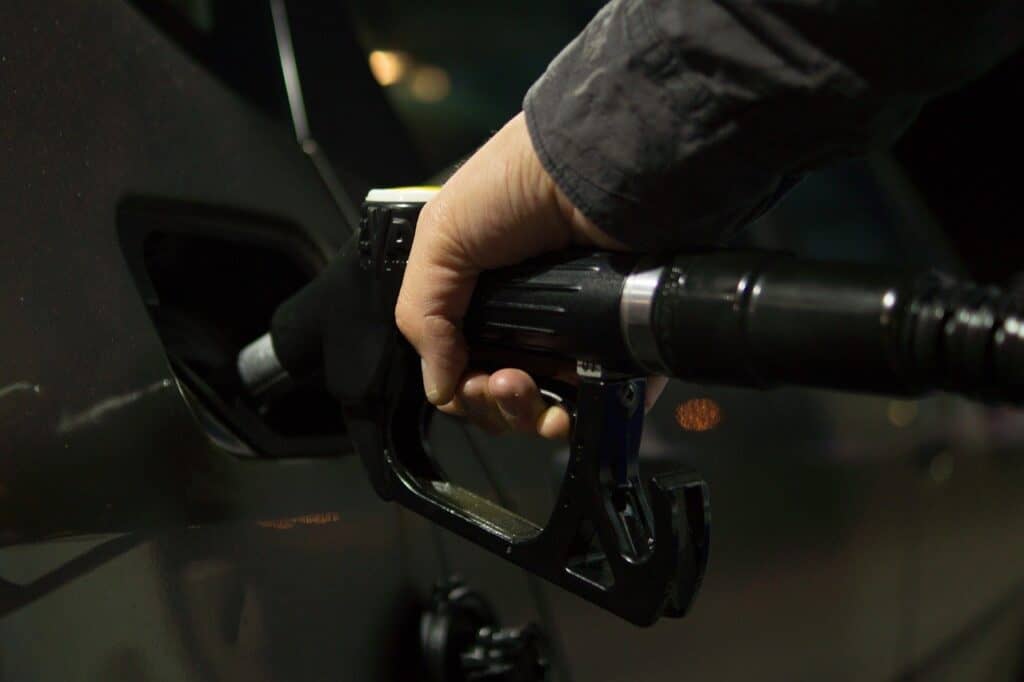Aluminum is unique in all the elements on the periodic table in that it has two correct spellings, aluminum is popular in North America, but the rest of the world uses aluminium. They are both correct, no matter what the spell checker on your word processor says. A much bigger question, however, is whether this lightweight, silver-colored metal is flammable or not?
Aluminum remains solid at temperatures up to and including 199.4 degrees Fahrenheit (93 degrees Celsius) and will not burn except at very high temperatures. This means that aluminum is not considered flammable, nor is it considered to be combustible. It is often used for its flame retardant properties.
Lets take a closer look at what aluminum is and how it behaves around fire. Just because it is not technically flammable, that does not mean that it is always safe when heated.
Your # 1 priority is keeping your family safe. As a firefighter, I recommend everyone has updated smoke detectors that don’t require battery changes, like these ones from Kidde, a fire extinguisher, like this one from Amerex, and a fire escape ladder if you have bedrooms above the first floor, I recommend this one from Hausse.
Also read: What Makes Something Flammable?
What Is Aluminum?

Aluminum is a metal that looks silver in appearance and is much less dense than most metals, which makes it light and easy to work with.
It’s the 12th most common element in the universe and it is not particularly reactive, though it will bond with oxygen and form oxides (which is what the majority of aluminum ore consists of).
It began being mass produced back in the 19th century and has been a crucial resource ever since, it is particularly important in aviation.
One unusual thing about aluminum is that though it is extremely common in the natural world, no living creature (that we know of) uses aluminum in any of its biological processes.
However, it’s fair to say that almost all creatures can tolerate the presence of aluminum, to some extent, in their bodies too.
Also read: Is Copper Flammable?
Is Aluminum Flammable? Does it Burn?
Aluminum does not burn easily. It is not particularly flammable, though most elements will catch fire at some point.
In fact, during tests on materials made from aluminum, in many cases, the aluminum does not catch fire even when the temperatures surpass the melting point!
As we can see already, aluminum does not burn easily in a fire and, in fact, as we will see soon, it is often used for this very property as it is highly fire-resistant.
Also read: Is Lead Flammable? Will it Burn?
At What Temperature Will It Ignite?
If you want to get aluminum to ignite, you need to be prepared to bring some heat, as it can take up to 2000 degrees Celsius or 3632 degrees Fahrenheit for aluminum products to catch fire in the air!
Also read: Is Calcium Flammable?
What Happens When Aluminum Is Heated?
Aluminum is a thermal conductor (as are most metals) and that means when you heat aluminum the energy is passed throughout the material without impedance.
So, if you were to heat one end of an aluminum sheet, rapidly, the temperature of the whole sheet would rise, and it would end up approximately at a uniform temperature throughout the sheet.
And as we’ve seen, it takes quite a bit of heat to make aluminum burn, so for the most part it will just get hotter until you reach the melting point of aluminum.
Aluminum begins to melt at 660.3 degrees Celsius or 1,221 degrees Fahrenheit.
This is not particularly hot for metal to melt at, but it is possible for molten aluminum not to burn, which is an unusual trait.
Also read: Is Graphite Flammable? Explained
Does Aluminum Boil?
Aluminum, when heated enough, will boil but it is important to recognize that this will not occur in the presence of oxygen, as the aluminum will being to burn before it boils.
The boiling point of aluminum is about 2,470 degrees Celsius or 4,478 degrees Fahrenheit which is a very high temperature, and it won’t occur anywhere in your day-to-day llife.
There is no danger of aluminum boiling because it’s been left in the sun too long or because it was dropped into a hot oven.
To boil aluminum would require special apparatus to keep the aluminum in a relative vacuum or encased in an inert gas while it was heated up to the right temperature.
Also read: Is Potassium Flammable? Violent Reactivity
Will Aluminum Dust Explode/Spontaneously Combust?
However, it’s important to recognize that, as with many substances, aluminum dust does not behave in the same way as solid aluminum does.
When you make a material into a powder or dust, you dramatically increase the available surface area in comparison to the volume of material.
This has the effect of dramatically reducing the ignition point of the material and in the case of aluminum it means that aluminum dust can explode in the presence of a naked flame or an electrical spark.
Take a look:
It’s important to work very carefully with dust on any description and a full health and safety assessment should be done on the work environment and the individual working before any work is carried out.
There is quite a bit of evidence that says aluminum dust can spontaneously combust, though it would need to reach a fairly substantial concentration in the air to do so.
It is also worth noting that if the air contains any moisture, aluminum dust can react with the water, using the oxygen in the water to oxidize and freeing up hydrogen gas.
This is a major safety concern as hydrogen is highly flammable and can also spontaneously combust and will catch light very easily, indeed, in the presence of a naked flame or electrical spark.
Why Is Grinding Aluminum Dangerous?
Grinding aluminum is a relatively straightforward process and it would not be any more dangerous than grinding any other metal except for the propensity for grinding to create aluminum dust.
As we’ve seen already, aluminum dust is potentially explosive and it’s important to grind aluminum in a very well ventilated area (ideally with some form of artificial extraction) to keep the dust volumes to a minimum.
Can I Get Aluminum Poisoning?
In general terms, aluminum is fairly harmless, though there are some links between excessive amounts of aluminum in the human body and Alzheimer’s disease in later years.
However, it is possible to increase your exposure to aluminum to dangerous levels where aluminum poisoning is a potential outcome.
The main risk factors are:
- Working with aluminum or living or working near where it is being mined or processed
- Breathing in aluminum dust or aluminum compounds as dust in the workplace, potentially this could also happen in the event of a fire when such compounds are present in the smoke
- Drinking or eating anything containing very high amounts of aluminum
- Living near sites where aluminum waste has been disposed of
If this leads to aluminum poisoning this may cause:
- Mental confusion or speech problems
- Seizures
- Fractures and deformities of the bones
- Weak muscles
- Growth problems (in children)
- Lung problems
- Nervous system disorders
- Diseases of the bone and/or the brain
- Anemia (due to impaired iron absorption)
If you suspect that you have aluminum poisoning, you should talk to a health professional immediately.
The good news is that treating aluminum poisoning is fairly straight forward, the bad news is that any damage done by this poisoning is likely to be permanent.
So, the earlier you seek treatment, the better.
Is It Bad To Burn Aluminum Foil?

As we’ve already seen, solid aluminum does not burn very well.
If you want to burn aluminum foil, you need to get it hotter than 660 degrees Celsius or 1220 degrees Fahrenheit.
That is much hotter than an oven or a cigarette lighter and thus, you’re not going to burn aluminum foil in day-to-day activity without setting out to do so.
Is it bad to burn aluminum foil? If you can make it hot enough, you will get aluminum oxide which is another relatively harmless compound.
However, as aluminum oxide occurs naturally, there’s no need to do this as the foil you have was almost certainly made by reducing aluminum oxide in the first place.
Related Articles
Is Aluminum Foil Flammable? Can it Burn or Melt?

